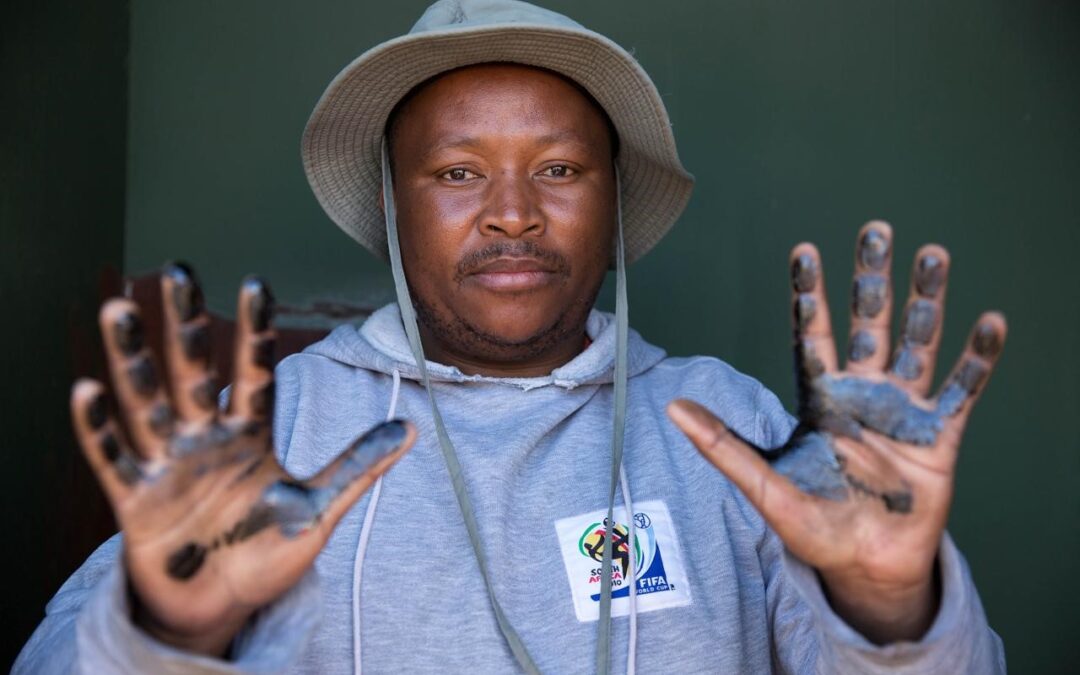
Report reveals EU allows wide distribution of banned pesticides
Rico Euripidou
A research report by Swiss based NGO – Public Eye and Unearthed, Greenpeace UK’s investigation unit, (assisted by groundWork in South Africa) has revealed the extent to which the European Union allows the export of banned toxic agro-pesticides to countries in the global South. This research exposes the hypocrisy of allowing multinational agrochemical companies to flood low and middle income countries with substances deemed too dangerous for European agriculture. The Swiss based giant Syngenta plays a leading role.
Syngenta’s best-selling pesticide, paraquat, is so dangerous that just one sip can be lethal. Even small to medium amounts of paraquat can lead to fatal poisoning with known incidents of lung scarring and of multiple organ failure. Paraquat has been banned in Switzerland since 1989 and in the EU since 2007, on the grounds that it is too hazardous for European farmers even when wearing protective equipment.
Despite this, Syngenta continues to manufacture 28,000 tonnes in the EU and export it to countries with weaker regulations in South America, Asia and Africa, where it causes thousands of poisonings every year. Paraquat alone accounts for more than a third of Europe’s exports of banned pesticides.
The researchers obtained thousands of “export notifications”, the paperwork required under European law to export their banned pesticides beyond the European Union to provide us with the most complete available record of this deadly trade. More than 81,000 tonnes of banned pesticides were approved for export. They are banned because of the unacceptable risks that they pose to human health and the environment. Three quarters of the 85 importing countries are low or middle income countries (LMICs), where the use of these substances presents the highest risks. Brazil, Ukraine, Morocco, Mexico and South Africa are among the top ten importers of pesticides “Banned in Europe”.
A total of 41 banned pesticides were notified for export from the EU in 2018. The associated health or environmental risks listed in the notifications are dramatic to say the least: death from inhalation, birth defects, reproductive or hormonal disorders, or cancer. These substances also have the potential to contaminate drinking water sources and poison ecosystems.
Our “Rainbow Nation” stands out for the diversity of pesticides imported. Among these products – including cyanamide, paraquat, alachlor, and nine other toxic substances were banned in Europe because the health risks were considered too high for farmers, even with the necessary protective equipment.
In my view pesticides are typically applied by migrant low skilled farm or forestry workers living in temporary camps. They are typically poorly educated and unable to read pesticide labels and often don’t get proper training and the necessary protective equipment. This practice of allowing exports of pesticides too dangerous for use for EU farmers is akin to “environmental racism” because workers and communities will end up being disproportionately exposed to toxic pesticides where regulations and conditions of use are not as rigorous as the EU.
Despite this the wider trend is that pesticide sales to Africa are booming. For years, Africa represented just a fraction of the global pesticide market. But our continent has quickly developed a taste for agricultural pesticides, supported by initiatives such as the Alliance for a Green Revolution in Africa (AGRA). Unfortunately, this growth in pesticide use does not come with the necessary protections. Weak or non-existent regulation combines with poor knowledge and minimal training, putting users at risk of widespread pesticide poisoning.
When confronted about this practice the corporations put forward arguments that their products are safe and they are committed to risk reduction. They say that they respect the laws of the countries in which they operate, and that each country has the sovereign right to decide which pesticides best meet the needs of its farmers even though the chemicals have been explicitly banned in the EU in order to protect human health or the environment.
Baskut Tuncak, the former UN Special Rapporteur on human rights and hazardous substances and wastes says “If the EU, with all its resources, comes to the conclusion that these pesticides pose unacceptable risks and are too dangerous for use, then how could they be safely used in poorer countries when the necessary protections are typically unavailable, most importing countries are also unable to control and monitor the use of such dangerous substances.”
What is also well known is that corporations may say that they adhere to national laws, but they also work hard to change and shape these laws. The global evidence of hazardous pesticide is unequivocal – pesticide poisoning kills more than 200,000 people in developing countries each year. It is really shocking that authorities allow these substances to come through our borders, whilst banned elsewhere, but poor governance and weak laws have become a norm in this country.
Ironically, among the banned pesticides residues most frequently detected in EU imported foods are substances banned for use in the EU, these pesticides find their way back to EU dinner plates. Michael Fakhri, the United Nations Special Rapporteur on the right to food sums up the double standard nicely:
“If a country bans the use of pesticides because they are deemed to be too dangerous, it should not allow its companies to export them, nor should it accept the import of food produced with these substances.”
Rico Euripidou trained as an Environmental Epidemiologist at the London School of Hygiene and Tropical Medicine in the UK. He is a environmental and public health specialist at groundWork, Friends of the Earth SA
This opinion piece also appeared as an article in The Mercury, Cape Times, and Pretoria News. You can access the press clippings here or view this article as a standalone webpage here



